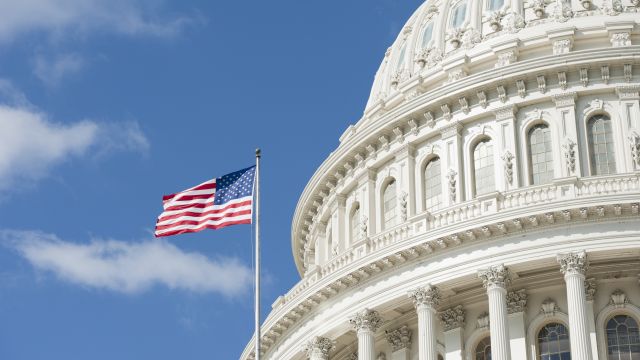The Corporate Transparency Act: What You Need to Know
Get to know the Corporate Transparency Act and how it can affect you
By Stephen Borg
Like many government regulations, the intent may be clear and worthwhile, but the implementation causes more harm to law-abiding citizens and business owners than it does to actually block or punish the bad actors the regulation was meant to address. This is the case with the recently enacted Corporate Transparency Act, which has caused massive amounts of confusion, compliance burdens, and privacy/safety concerns for small business owners throughout the country.
The Corporate Transparency Act (CTA) was enacted in 2021 as part of the annual National Defense Authorization Act (NDAA). It aimed to promote transparency in the ownership of entities conducting business in the United States to target money laundering and other illicit activities facilitated by anonymous shell companies. Under the CTA, companies must disclose information about their beneficial owners (individuals with at least a 25% ownership interest or control) to the Financial Crimes Enforcement Network (FinCEN) at the U.S. Treasury Department. Every corporation, LLC, or other entity created must file a beneficial ownership information report (BOIR) unless it qualifies for an exemption. Twenty-three types of entities are exempt from beneficial ownership reporting, such as publicly traded companies, banks, insurance companies, and large operating companies. Non-compliance or providing false information can result in fines (currently $591) per day of out-of-compliance. Additionally, a person who willfully violates the requirements may be subject to criminal penalties of up to two years imprisonment and a fine of up to $10,000. An entity formed before Jan. 1, 2024, must file these reports before Jan. 1, 2025. A company created on or after Jan. 1, 2024, and before Jan. 1, 2025, must file a report within 90 calendar days of the date on which it receives notice of its formal creation. More information on the exemption list, filing guidelines, and links to file the actual report can be found at https://www.fincen.gov/boi.
As you can imagine, business owners and associations throughout the country have been extremely concerned about this new requirement. On March 1, 2024, the federal district court in the Northern District of Alabama ruled in favor of the National Small Business Association and one of its members, Isaac Winkles, declaring the CTA unconstitutional. However, on March 11, the Department of Justice filed a notice of appeal on behalf of the U.S. Department of Treasury. While this appeal is ongoing, FinCEN has published the following notice on its website informing most businesses that they still must file the report by Jan. 1, 2025:
On March 1, 2024, in the case of National Small Business United v. Yellen, No. 5:22-cv-01448 (N.D. Ala.), a federal district court in the Northern District of Alabama, Northeastern Division, entered a final declaratory judgment, concluding that the Corporate Transparency Act exceeds the Constitution’s limits on Congress’s power and enjoining the Department of the Treasury and FinCEN from enforcing the Corporate Transparency Act against the plaintiffs. The Justice Department, on behalf of the Department of the Treasury, filed a Notice of Appeal on March 11, 2024. While this litigation is ongoing, FinCEN will continue to implement the Corporate Transparency Act as required by Congress, while complying with the court’s order. Other than the particular individuals and entities subject to the court’s injunction, as specified below, reporting companies are still required to comply with the law and file beneficial ownership reports as provided in FinCEN’s regulations.
FinCEN is complying with the court’s order and will continue to comply with the court’s order for as long as it remains in effect. As a result, the government is not currently enforcing the Corporate Transparency Act against the plaintiffs in that action: Isaac Winkles, reporting companies for which Isaac Winkles is the beneficial owner or applicant, the National Small Business Association, and members of the National Small Business Association (as of March 1, 2024). Those individuals and entities are not required to report beneficial ownership information to FinCEN at this time.
This court case and issue have definitely not been going away quietly as the issue is currently on appeal in the Eleventh Circuit, and other court cases have been filed in states including Michigan and Maine. Members of Congress are taking another look at whether this provision of law should have been enacted in the first place. Earlier this year, Representative Warren Davidson (R-OH) introduced H.R. 8147, the Repeal Big Brother Overreach Act. Senator Tommy Tuberville (R-AL) introduced the companion Senate version as S. 4297. These bills would repeal the Corporate Transparency Act. While neither bill has seen action in either House as of yet, they continue to gain cosponsors by the week, and momentum is continuing.
Should you have concerns or questions about the Corporate Transparency Act, I would encourage you to research the above link to the FinCEN website and also reach out to the Mason Contractors Association of America for advice and guidance.
We will continue to monitor and engage with Congress on this important matter and would encourage you to contact your Member of Congress to raise any concerns you may have and ask them to add their name as a cosponsor to the legislation highlighted above.
About the Author
Stephen Borg is Vice President of The Keelen Group.
















